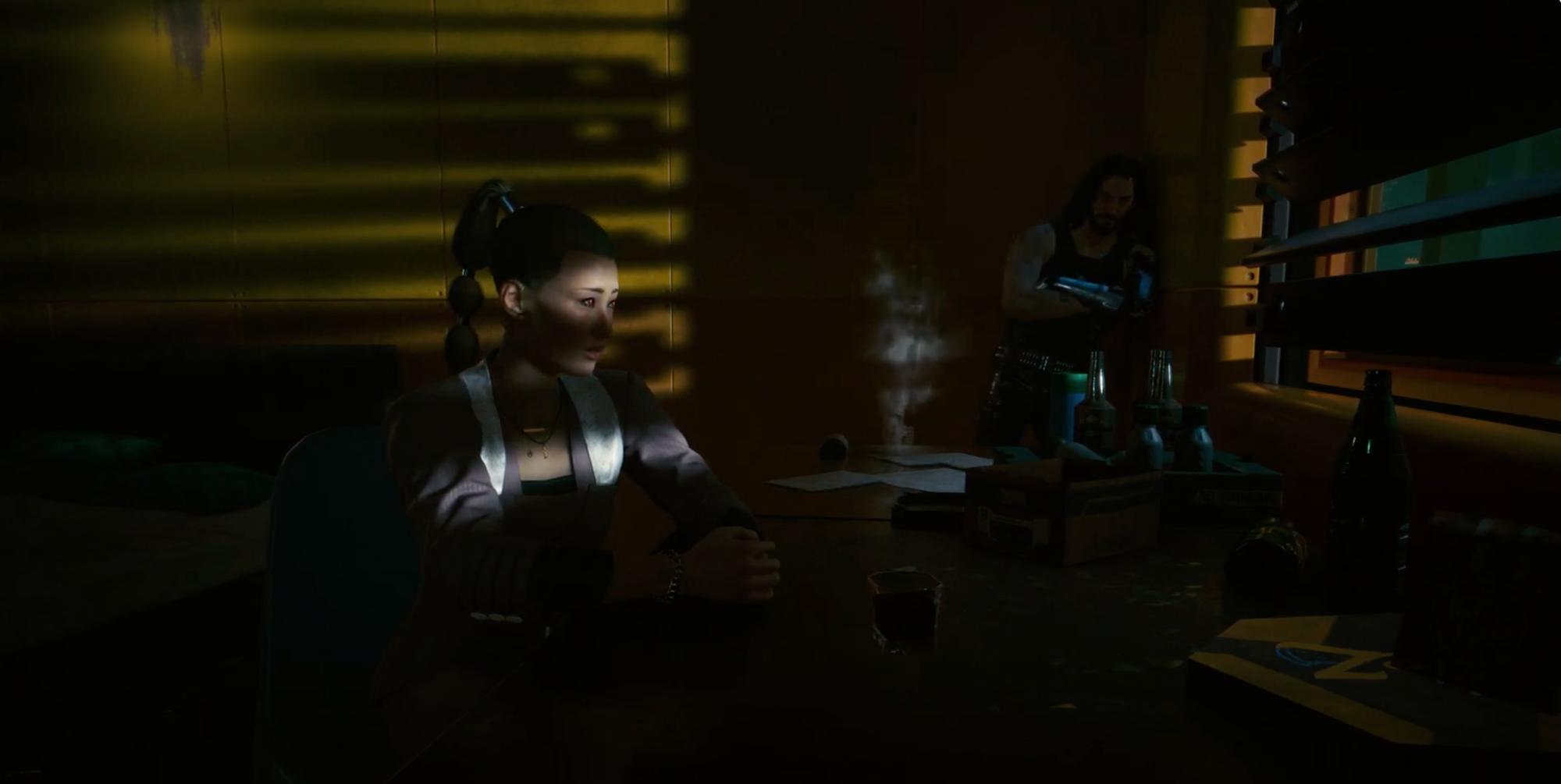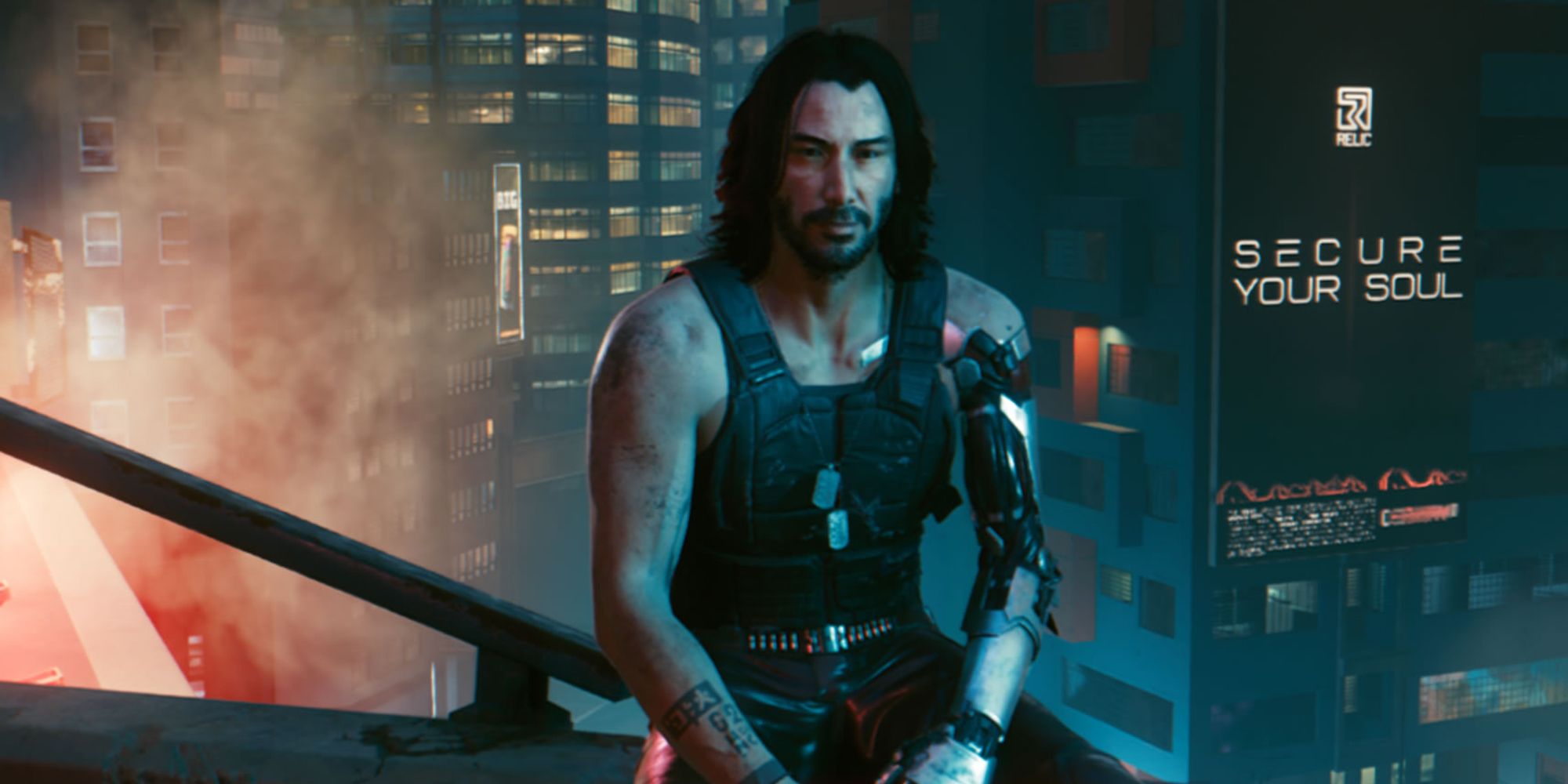Surprising Depths: The Emotional Resonance in Cyberpunk's Storytelling
A love letter to Cyberpunk 2077, a game that resonated with my emotions

I very nearly overlooked Cyberpunk 2077 entirely.
You probably know why, given the game's disorderly release. From now and then bugs that somewhat affected the game, to glitches that downright spoiled the experience.
Rather predictably, it was a media frenzy. Many publications recommended avoiding the game entirely, with Sony even taking the game off PlayStation Network until CD Projekt Red could ensure issues were sufficiently fixed.
I had an ageing PS4 and an underpowered PC at the time of release, and there was no way I was going to sully the experience of a game I'd been looking forward to for years.
I'd have to wait and seize the opportunity if I managed to bag a PS5 or a more beefy PC.
Just as we want to read one more chapter of a captivating book, the writers behind Cyberpunk understand that a good narrative makes us want one more mission, one more interaction, one more hour.
Eventually, I did manage to get a PS5 while CD Projekt Red released the 2.0 update, as well as Phantom Liberty. Now was the time to jump in. Even after all this time, I'm glad I did - because Cyberpunk 2077 is the greatest game I've played in the last 10 years.
Those put off by the fractious start, like myself, can now visit Night City in all its neon-soaked glory. With a steady stream of quality-of-life updates, what a turnaround it's been for the team behind Cyberpunk.
But why is Cyberpunk 2077 the best game I've played in the past 10 years?
Put short, Cyberpunk is a magical, otherworldly journey that embodies escapism through the art of storytelling. Beyond a mere game, it rises above its medium, asserting itself as a narrative form.

This is when Cyberpunk is at its best, as humans live for good stories.
There's an inherent fascination with captivating stories in our nature, or as Jonathan Gottschall, author of The Storytelling Animal says, “We are, as a species, addicted to story. Even when the body goes to sleep, the mind stays up all night, telling itself stories.”
Just as we want to read one more chapter of a captivating book, the writers behind Cyberpunk understand that a good narrative makes us want one more mission, one more interaction, one more hour.
It helps that performances, interwoven narratives and composition of poignant story moments are achingly beautiful.
It's not just a place to wander; it's a world filled with characters I truly care about. Even knowing the inevitable twists in Cyberpunk's narrative, I couldn't help but cheer for them.
I expected a good time in Night City, which I got. But I didn't expect to care as much as I did.
The last act took me by surprise, prompting deep reflections on the very essence of reality, the intricacies of life and death, and the existence of human connections.
But then, it wouldn't be a good Cyberpunk story if it didn't, right?
Story Depth and Beloved Characters
Great storytellers are masters at weaving intricate narratives, and Cyberpunk 2077 embraces this tradition.
There's seemingly always an opportunity to discover new relationships or lore through talking to characters or engaging with the many shards dotted about the city.
It's world-building on a level that crafts an elaborate canvas of intricate details, enveloping players in a sprawling and engaging realm.
So rich is the narrative that each playthrough unveils new layers, ensuring that the experience remains immersive but full of surprises.
Even when interacting with relatively minor characters, I can't help but admire how well CD Projekt Red has created a level of character authenticity I've never experienced in a game before.
I understand the constraints of present gaming technology, yet the illusion is potent enough that, with a sufficient suspension of disbelief, these characters seem to lead their lives even when I'm not present.
As long as Cyberpunk adorns my TV screen, the characters spring to life, becoming palpable entities vividly embodying their world. This dynamic portrayal remains a challenging feat, particularly in the realm of gaming storytelling.

In a sense, it's not just the world that lends authenticity; it's the quality of animation, direction, and voice acting that immerses us as players in something greater.
Despite the initial launch having those aforementioned bugs, those impactful moments remained. They always were, just marred by a botched launch.
Expectations are often subverted too, as a trip to Clouds (part of the Automatic Love quest) became one of the more poignant moments of the game when V unexpectedly opens up about his situation to a "Doll", effectively a robotic prostitute.
"You have been keeping up. You've made an impact. Not a single thing in this world isn't in the process of becoming something else. Likewise you. Never look back." - Skye
Characters have depth, regardless of how much screen time they have.
Johnny Silverhand seems charming to some, but an insufferable asshole to those who know him best. Silverhand's arrogance and outlandish behaviour are the basis for his character growth, something he comes to terms with towards the end of his story.
Takemura appears all business, but his quirky side comes through in his texts. Someone who appears cold and difficult to read becomes much more human and relatable when you delve into his messages, revealing a personality beyond the initial impression of being strictly business-oriented.
Everyone's favourite buddy, Jackie, seems like a typical aspiring-big-leagues guy until you visit his garage before the ofrenda and learn more about his motivations. And this is key, as it's not just what the characters say, but their actions can say so much more.
But even outside of the main cast, seemingly insignificant moments in the game give the characters a human touch and allow the story to breathe before the significant events unfold.
Is Pacing an Issue in Cyberpunk 2077?
Let's deal with the elephant in the room, first.
Yes, V is dying and yes, he knows this to be the case. So why then would he want to aimlessly roam Night City?
Well, there are several reasons, but I like to think V might want to roam Night City despite knowing he's dying because it's a way to find meaning, closure, or a sense of purpose in his remaining time.

Exploring the city could be a search for connection, resolution, or just moments of significance before the inevitable end. It's a way to make the most of the time left, even in the face of mortality.
Remember that conversation V had with Skye at Clouds?
"You've never backed down from anything in your life, even when you maybe should've. You go through Night City knowing a stray bullet could end you while hailing a cab. But that's never stopped you from taking action, going where you needed to go. And it won't stop you now."
"I think the best stories always end up being about the people rather than the event, which is to say character-driven." - Stephen King
V continues to move forward, even if sometimes without a clear purpose because it's his familiar path. His capacity to wander the city and temporarily escape mirrors his capacity to seek meaning or answers to life's profound question: What does it mean to face mortality?
The flow of the narrative is a stroke of genius.
From shouting at Delamain for some peace after Jackie's death to sharing a moment with Johnny amid an existential crisis at the oil fields, or taking Rogue to the movies on a whole mission.
These are instances that paint the world we temporarily live in.
They provide richness, forging links between characters, whether impacting the story positively or negatively.

Does pacing pose a problem?
In the expansive landscape of an open-world game, I'd argue it doesn't. The rhythm of the main plot, punctuated by periods of calm, resonated positively with me, though opinions may differ.
Emotional Resonance in Night City
As I dove into Cyberpunk 2077, I never expected the emotional impact it would pack, especially towards the game's end.
The futuristic setting and gripping storyline drew me in, but it was the characters who truly captured my heart.
The game took me by surprise, throwing me into moments where decisions felt like they had real consequences. It blurred the lines between the digital world and reality, making my choices carry weight.
Night City's relationships became more than pixels—they felt like genuine companions on a shared journey.

I can't think of many other games that have made me feel this way, but Soma is probably the only other game to note that carried with it an emotional weight I didn't expect.
Just like in Soma, I found myself facing morally grey decisions, pondering philosophical questions, and navigating ethical dilemmas that mirrored real-life complexity.
The characters, brilliantly portrayed, were more than avatars; they were individuals with their struggles and emotions.
As the narrative reached its climax, the consequences of my choices unfolded. The characters reacted authentically, and the weight of responsibility hit me.
My virtual decisions had tangible effects on their digital lives.
The game's emotional crescendo left me grappling with unexpected depth. The storytelling prowess of Cyberpunk 2077 made it more than just a game—it was an emotional odyssey.
The philosophical questions raised lingered, and the characters' fates were etched in my mind.
In the end, it surpassed expectations.
It wasn't just a game; it was a thought-provoking experience that tugged at my emotions and left me pondering its philosophical undertones.
I didn't want the game to end, a testament to the narrative's power and the genuine connection forged with Night City's inhabitants.
Now that I have finished, I simultaneously feel empty, but all the richer for having experienced it.





